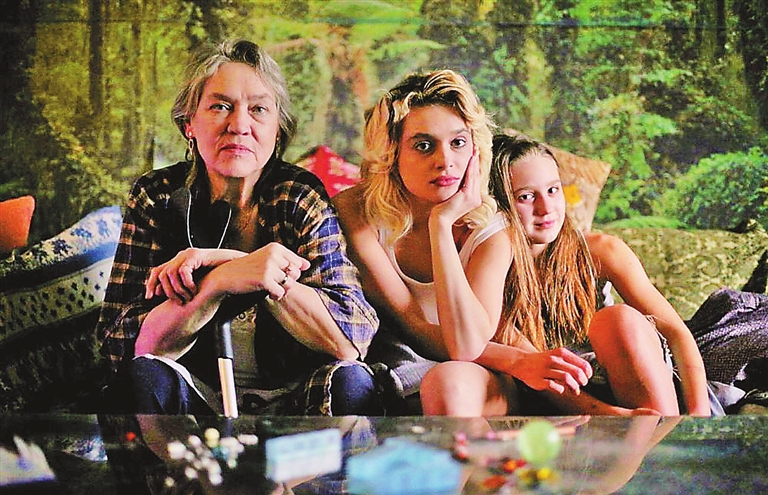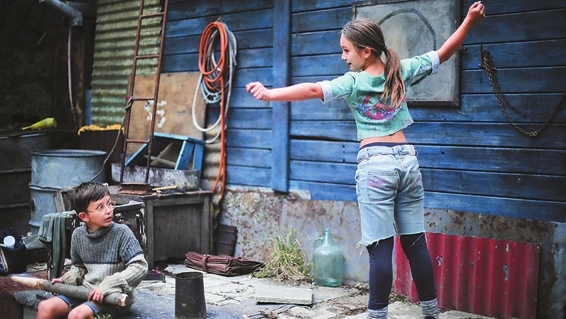

Starring: Vanessa Szamuhelova, Matus Bacisin, Katarina Kamencova, Johana Tesarová Director: Iveta Grofova SLOVAK filmmaker Iveta Grófová studied documentary and animated film and her first feature outing came out in 2012 under the title “Made in Ash.” It was the Slovakian entry for Best Foreign-Language Film Oscar at the 85th Academy Awards. In that film, a girl leaves her home right after school for work in a neighboring country in order to help her family make ends meet. She arrives in a textbook example of a post-industrial ghost town from the former Soviet bloc. She gets sacked from the job and an elderly German sex tourist starts to court her. The evident contours of Eastern European social drama cannot be hidden, especially since the protagonist comes from a heavily underprivileged community and the plot revolves around her bitter life and work experiences. However, Grófová’s formalistic tinkering pushed the film into a higher category, combining fiction and documentary methods and chipping in animated parts alongside found-footage material. Grófová’s sophomore feature “Little Harbor” walks a considerably different path. “Little Harbor” is an adaptation of a novel by the Slovak author Monika Kompaníková, “The Fifth Boat.” It is narrated in the first person by the adult protagonist Jarka, reminiscing on her life in several retrospectively intertwining plotlines uncoiling around the central episode, the kidnapping of abandoned infant twins when Jarka was only 10 years old. Jarka lives in a ramshackle apartment with her ailing grandmother and a way too liberal, meaning irresponsible, single mother. The longer setup serves to build a deeper empathy for the central character who longs for her mother’s affection while her mother longs for unrestricted male gazes. Left to tend for herself, Jarka lives in a sort of hippie environment, a product of her mother’s egoism, narcissism and own unfulfilled ambitions thwarted by early pregnancy. In contrast to Jarka’s freewheeling upbringing and their mess-of-an-apartment, her younger and dorkish friend Kristián lives in a totally sterile environment under the close watch of his anxious parents. The unlikely alliance uncovers the extremities of child rearing and their yearnings, while Grófová eschews moralizing and sentimentality, despite anchoring the story in a poetic world of a child’s perspective. Unveiled as a world premiere at Berlinale 2017, the film was picked for the Generation Kplus sidebar with age recommendation 12 years and up. While the novel counts more on adult readers, the film blurs delicately the line of audience segment. Apparently, the main affair of kids taking care of infants is perceived as an adventure in the eyes of child viewers, while older spectators will incline to decode it as a peculiar coming-of-age and socio-psychological drama. Opting for the point of view of a child, Grófová locks in the child audience whilst carefully building a bridge of empathy between the protagonist and older spectators, still investing enough time in crafting the character’s psychology. The initial constellation of a psychological film possesses vestiges of social drama, a foundation not sufficiently prominent to eclipse the psychological portrait. The elements of social drama occupy the first half of the running time, revolving around an episode of three generations of women that could not be more different occupying the same space. In the second half, both characters escape the adult world, taking refuge in a bubble of their own where they have to assume adult roles of a caretaker and a guardian, respectively, and shoulder responsibilities in the light of the new situation. While Jarka compensates for the shortage of her mother’s affection, Kristián passes a rite of passage liberating himself from his parents’ apprehensive scrutiny. The bubble becomes an idyll. “Little Harbor” won the Crystal Bear at the 67th Berlinale in 2017. The movie is now being screened in Shenzhen. (SD-Agencies) | 
